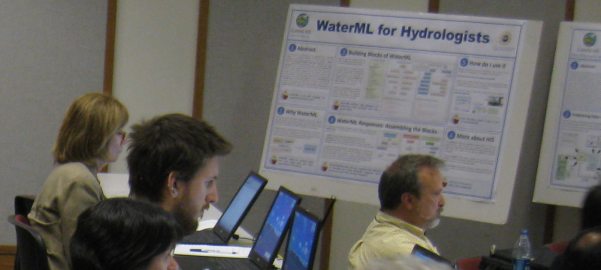
| Science Leaders for Watershed Modeling |
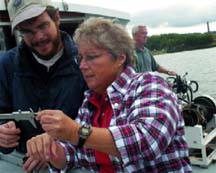 Mary Watzin
Mary Watzin
Professor - UVM Rubenstein School of Environment and Natural Resources
CV
|
Mary specializes in Aquatic Ecology and Ecotoxicology. She is very active in many of the research and education initiatives taking
place throughout the Lake Champlain basin. Her research spans lakes, rivers, and estuaries and is focused on understanding how human
activities, especially polluting the water and altering the landscape, influences the invertebrates, fish, and birds that live in around
the water. Although much of her work is now concentrated on Lake Champlain and its surrounding watershed, Mary has also worked in the south
Atlantic, the Gulf of Mexico, and in several lakes in Macedonia, Albania, and southeastern Europe. She teaches courses in a variety of areas,
including Ecosystem Management, Marine Ecology, Restoration Ecology and Large Lake Ecology. Mary has offered her expertise of Lake Champlain
watershed to the Streams Project. She holds a BS degree in Marine Sciences from the University of South Carolina (1978) and a PhD in Marine
Science from the University of North Carolina at Chapel Hill (1984). For more information about Mary's research, go to
http://www.uvm.edu/envnr/?Page=mwatzin/default.html.
|
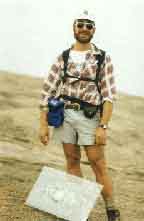
Paul Bierman
Professor of Geology, University of Vermont
CV
|
I am a Geomorphologist with wide-ranging interests including isotope geochemistry, surface process, human-induced landscape change,
and rates of erosion. I am particularly interested in working at the interface between active research, education, and science
literacy at all levels -- thus my involvement in the Governor's Institutes of Vermont (a residential program for high school
science students) and NSF's Career program combining research and education. For more information see
http://www.uvm.edu/~pbierman.
|
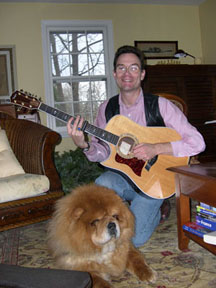 Nick Gotelli
Nick Gotelli
Professor of Biology - University of Vermont
CV
|
Nick Gotelli's research addresses basic questions about the organization of animal and plant communities. What are the forces that
determine the species composition and abundance of natural assemblages? How do competition and predation affect local community
structure? What are the biotic and abiotic factors that control population growth and the risk of extinction? His currently teaches
an undergraduate course in Ecology and Evolution and an undergraduate/graduate course in Community Ecology.
He is the author of numerous scientific papers and several books including, Gotelli, N.J. and A.M. Ellison. 2004. A Primer of
Ecological Statistics. Sinauer Press. Nick holds degrees from the University of California, Berkeley (BA - 1980) and Florida
State University (MS - 1982 & PhD - 1985). Nick joined the UVM faculty in 1992. For more information see
http://www.uvm.edu/~ngotelli/homepage.html.
|
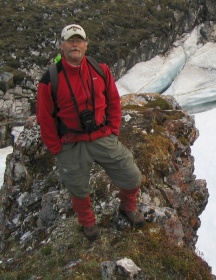
Brek Bowden
Professor - Rubenstein School of Environment and Natural Resources
CV
|
Breck is the Patrick Professor of Watershed Science and Planning in the Rubenstein School of Environment and Natural Resources
at UVM and Director of the Vermont Water Resources and Lake Studies Center. His research interests include interactions between
hydrological and biogeochemical processes, especially as these processes are influenced by land use practices and land cover
characteristics at catchment scales. He is also interested in uptake and use of science knowledge by resource managers, policy
makers, and community stakeholders. Recent courses Breck has taught include: Advances in River Corridor Management,
Ecological/Watershed Risk Assessment, Geomorphic Assessment of Stormwater Impacted Streams, Ecological Stoichiometry
and Stream Ecosystem Dynamics.
Breck holds a BS from the University of Georgia (1973), and MS and PhD degrees from North Carolina State University
(1976 and 1982, respectively). He was an Associate Professor of Water Resources Management at the University of New Hampshire
until 1997 when he accepted a position as Program Leader for Integrated Catchment Management with Landcare Research in New Zealand,
where he worked on regional watershed and land use management issues. Breck joined UVM in 2002 and continues to teach and lead research
on low-impact design alternatives for stormwater management in Vermont and on the effects of climate change on stream ecosystems
in the Arctic. For more information see
http://www.uvm.edu/~wbowden.
|
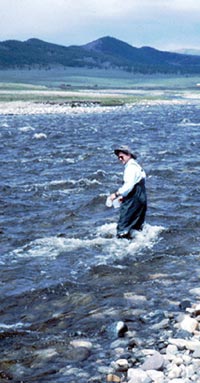 Cully Hession
Cully Hession
Associate Professor of Ecological Engineering - Virginia Polytechnic Institute and State University
Publications
|
Cully has a PhD in Biological Systems Engineering from Oklahoma State University, and MS and BS degrees in
Agricultural Engineering at Virginia Tech. He worked as an assistant scientist for USDA/ARS in Morris, Minnesota and as Senior
Environmental Engineer and NPS Modeling Coordinator with the Virginia Department of Conservation and Recreation in Richmond prior
to returning for his PhD in 1995. He then spent four years at the Patrick Center for Environmental Research, Academy of Natural
Sciences in Philadelphia, Pennsylvania as the Biosystems Engineering Section Leader and Assistant Curator. In 1999, he joined the
Civil and Environmental Engineering faculty at the University of Vermont to initiate a program in ecological engineering. Cully
established research and teaching programs at the University of Vermont in collaboration with interdisciplinary groups of scientists
and engineers and was promoted to the rank of Associate Professor with tenure in 2005. He was the first leader of the RWE initiative.
His currently conducts research toward: 1) understanding the effects of riparian (streamside) vegetation on stream channel geometry
and aquatic habitat condition; 2) quantifying streambank erosion contributions to watershed-scale sediments and nutrients; and 3)
determining the links between channel morphology (physical condition) and aquatic ecosystem health.
|
|
|
|




